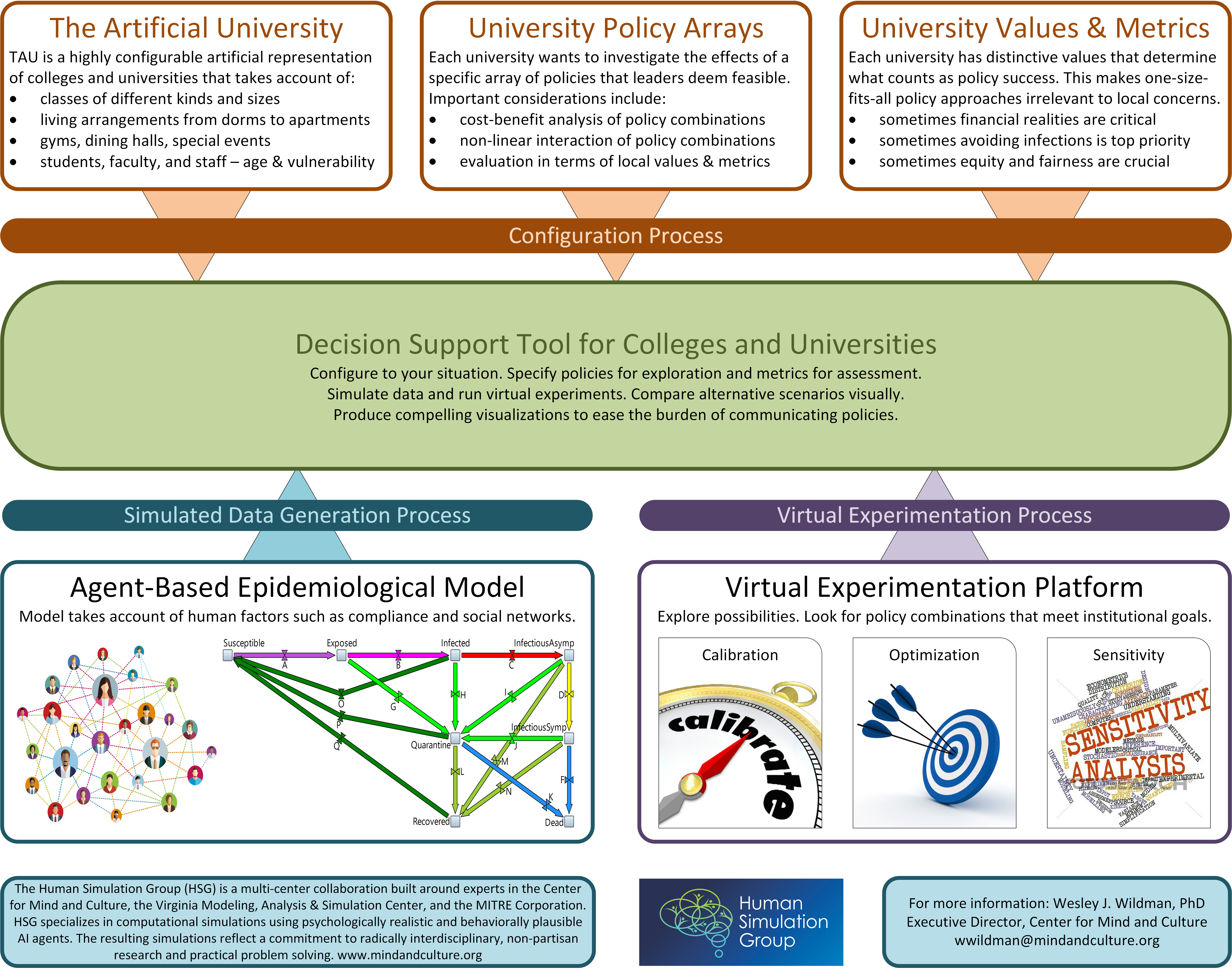A number of universities with the requisite resources and personnel are building bespoke simulations to help guide policy-level decisions about operating under COVID-19 conditions. Such simulations have access to confidential data but the research can’t be published or shared. On the other end of the spectrum are one-size-fits-all sources of advice, which can’t take account of the hard facts that universities operate in different contexts with different measures of what counts as success. Many universities can’t shut down football for short-term revenue and long-term fund-raising reasons, and centralized contact tracing would be a perilous venture in a university with privacy-conscious students, faculty, and staff.

The Artificial University (TAU) facilitates the evaluation of intervention plans using multiple metrics, generates insights to inform policy decisions, and produces visualizations that help to communicate policy reasoning. TAU is a uniquely useful epidemiological model because:
- it takes account of human factors such as social networks, individual vulnerabilities, and multiple types of compliance;
- it is highly configurable to individual universities and accommodates politically feasible interventions and varied health and equity metrics;
- it is calibrated using only public data, while allowing individual universities to employ confidential information if they so choose;
- it can be made responsive to regularly updated data about the local region and to university health data;
- it supports cost-benefit analyses of a host of infection and anti-body testing strategies;
- it is open-source, placing freely available code in the hands of university administrators for their own use; and
- it generates valuable insights, including tipping points and cost-benefit analyses that can aid university planners as they seek to optimize health outcomes and maintain the confidence of staff, faculty, students, and parents without breaking the university bank.
TAU is both theoretically important, as a serious advance in the fields of social simulation and health policy, and practically important, particularly for universities lacking the resources to create their own bespoke policy simulations to assist in evaluating operating plans.
For more information about TAU. see the project page on this site.